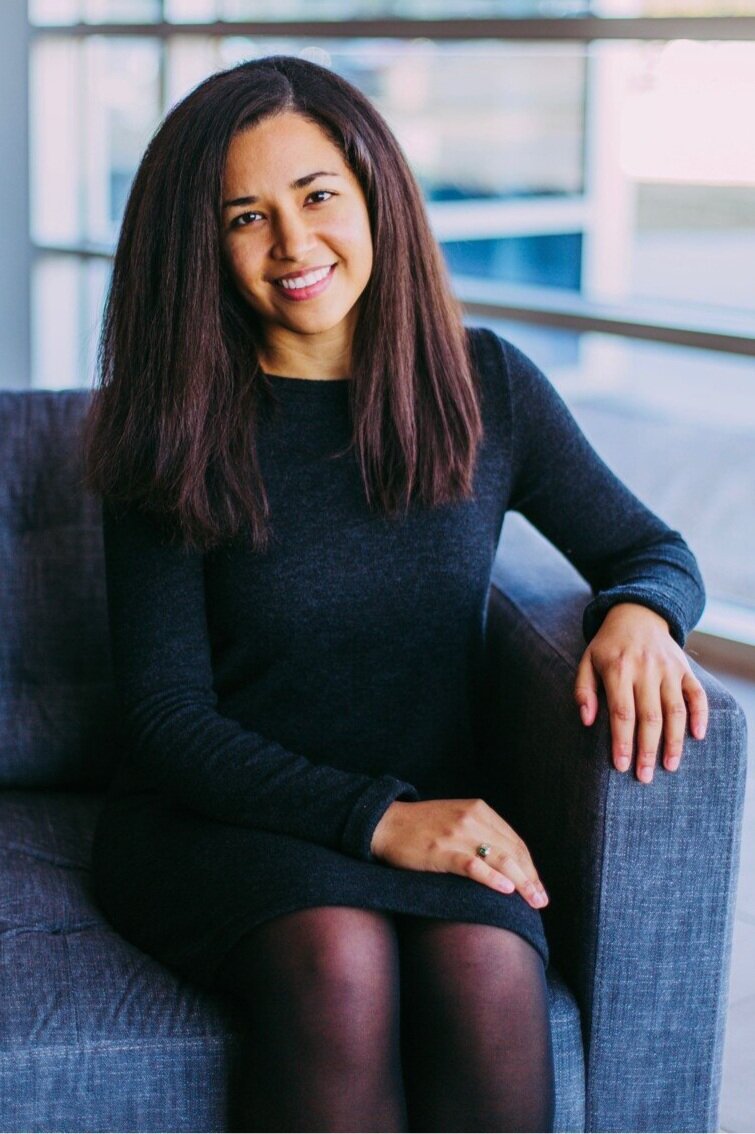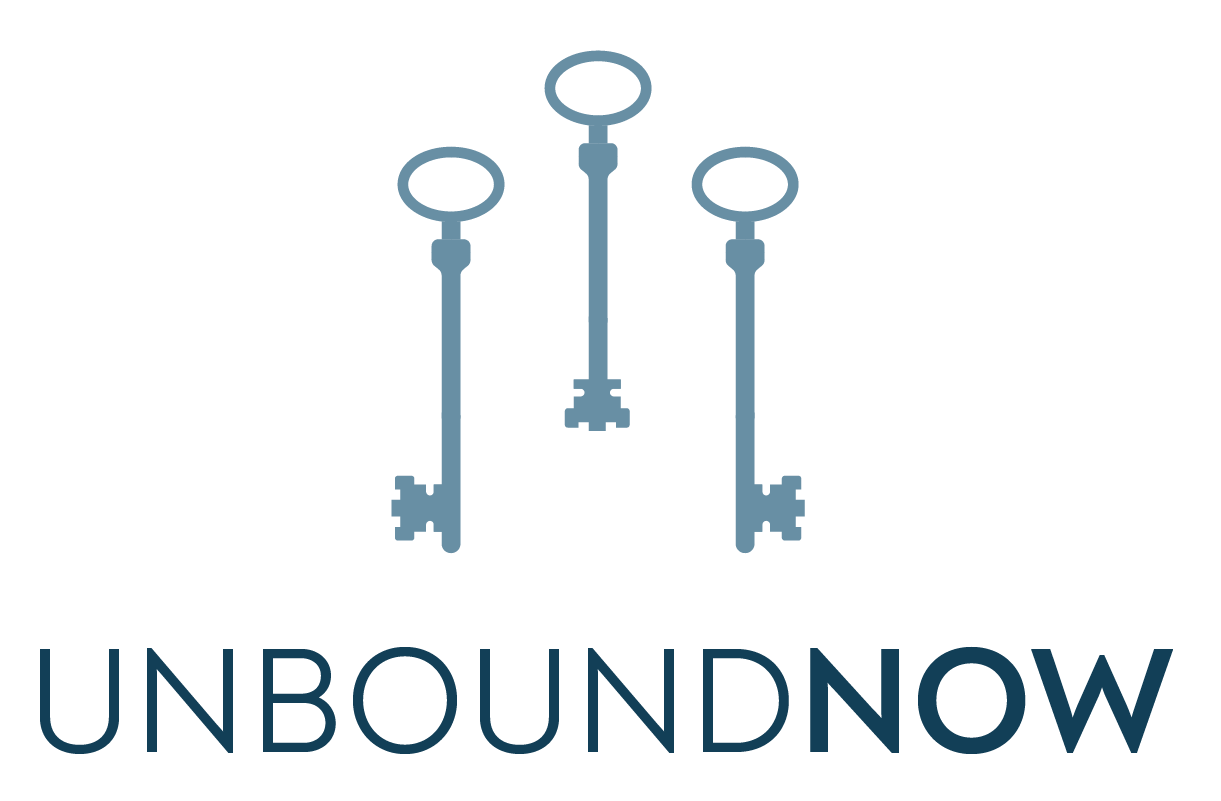Chelsea is the lead case manager at Unbound Waco, providing comprehensive case management services to all types of human trafficking victims and survivors. We asked Chelsea some questions to better understand her role.
What does your role look like at Unbound Waco?

“My role involves journeying with human trafficking survivors through their processes toward healing and restoration. My first priority is ensuring their safety and meeting any immediate needs–food, clothing, shelter, etc. My second priority is building a client-worker relationship centered on trust. I build trust by listening to their stories, taking them to eat at their favorite restaurant, and remembering their birthdays. I build trust by discovering their strengths and dreams. It takes time to build trust, but it’s an important foundation for effective advocacy and case management.”
What is something you wish that more people were aware of concerning human trafficking?
“We all need each other. Not one agency can bring an end to this injustice. And not one agency can meet all the needs of a trafficking survivor. We need teachers to be trained to identify if their students are vulnerable. We need medical professionals to identify if patients are potential victims. We need lawyers and police officers. We need social service agencies and emergency and long-term housing programs.”
Describe some of the obstacles that victims face on the road to recovery.
“I think there are two [primary] types of obstacles that survivors often face on the road to recovery. There are personal obstacles, such a substance abuse, complex trauma, and mental disorders. Then there are systemic obstacles, such as lack of access to needed specialized services and resources, policy issues, lack of awareness, and/or lack of trained personnel.
Obstacles such as substance abuse and complex trauma often resemble the “chicken-and-the-egg” dilemma. Maybe victims were initially vulnerable to human trafficking due in part to a struggle with substance abuse, or maybe they had other vulnerabilities and then developed substance abuse along the way. Drugs are often the first thing that the trafficker wants to introduce to victims because it makes them more dependent on the trafficker and more compliant with the process. This has to be addressed immediately regardless of how or when it developed because it can cause victims to still find themselves in dangerous situations.
The experiences of each survivor are so unique, and their recovery processes will be unique as well. When I answer the hotline or interact with a survivor, I have to keep my mind open because though they may have a similar story to another survivor, he/she will have different needs or different preferences on how to meet their needs. But some obstacles can include drug and substance abuse, history of adverse childhood experience, trauma and complex trauma, lack of education, lack of family/community support.
Keeping an open mind and assessing what they need and how we can achieve those needs is crucial. There is often a lack of awareness or trained personnel, if you don’t have personnel who are trained to deal with trauma it becomes much more difficult to effectively assist victims. It can be hard because everyone is so different. Each victim has different needs and the ways we can approach them will differ widely from case to case.”
What keeps you hopeful as you do your job and work with survivors?
“Ever since I was a little girl, I knew I wanted to be a person who carries light into hopeless situations, a person who carries hope into dark places. Ever since I was a little girl, I knew my purpose. But as I grew up, I found myself passionate about so many things. I found myself passionate about fighting poverty, racism, hunger, education, child abuse, homelessness, bullying, and substance abuse. I found myself passionate about racial reconciliation, higher education, equality, and mental health. With so much passion in my heart, I didn’t know how to practically move forward in fulfilling my purpose. So I prayed to God; and in my prayers, I pictured myself placing my passions and dreams at the feet of Jesus and asking for His dream in return. I believe that God offered me His dream that day–His dream of hope and freedom for those trapped in human trafficking. And I believe that even before I asked, He was preparing me for this work. And if I’m honest, the work I do is really hard and, oftentimes, discouraging. Sometimes it’s easy to believe that the grass is greener on the other side, but I don’t want to strive after the calling of another. And as much as I loved running track, I don’t want to run a race that God never intended for me to run. So I remain hopeful because I know Jesus; and He is the One leading me. He is my hope, and I trust Him.”
How do survivors of human trafficking demonstrate resilience?
“In the words of Elizabeth Kubler Ros, ‘The most beautiful people we have known are those who have known defeat, known suffering, known struggle, known loss, and have found their way out of the depths. These persons have an appreciation, a sensitivity, and an understanding of life that fills them with compassion, gentleness, and a deep loving concern. Beautiful people do not just happen.’
The individuals with whom I work are some of the most beautiful people in the world. Their beauty is a direct result of their resilience–the ability to overcome adversity. Each survivor of human trafficking demonstrates resilience in his or her own unique way because each survivor has unique life experiences and unique responses to those experiences. Some survivors of human trafficking demonstrate resilience by obtaining their high school diploma or GED and pursuing higher education. Some survivors of human trafficking demonstrate resilience by showing up for a counseling session. Some survivors demonstrate resilience by courageously testifying against the people who exploited and abused them. Some survivors demonstrate resilience by becoming an advocate themselves in order to help set others free. And some survivors demonstrate resilience by choosing to keep themselves open to love and friendship. The individuals with whom I work are some of the most beautiful people in the world; and their beauty is a direct result of their resilience.”
What is one of your favorite parts of your work?
“I love working with the survivors and watching them regain confidence, and realize that they are beautiful, strong and intelligent. I get to watch them realize they are capable and worthy of the life they have imagined for themselves. It’s really easy for them to lose a sense of hope and getting to see them find that sense of hope is really powerful.”
By Maddie Fossler
Writing Intern
